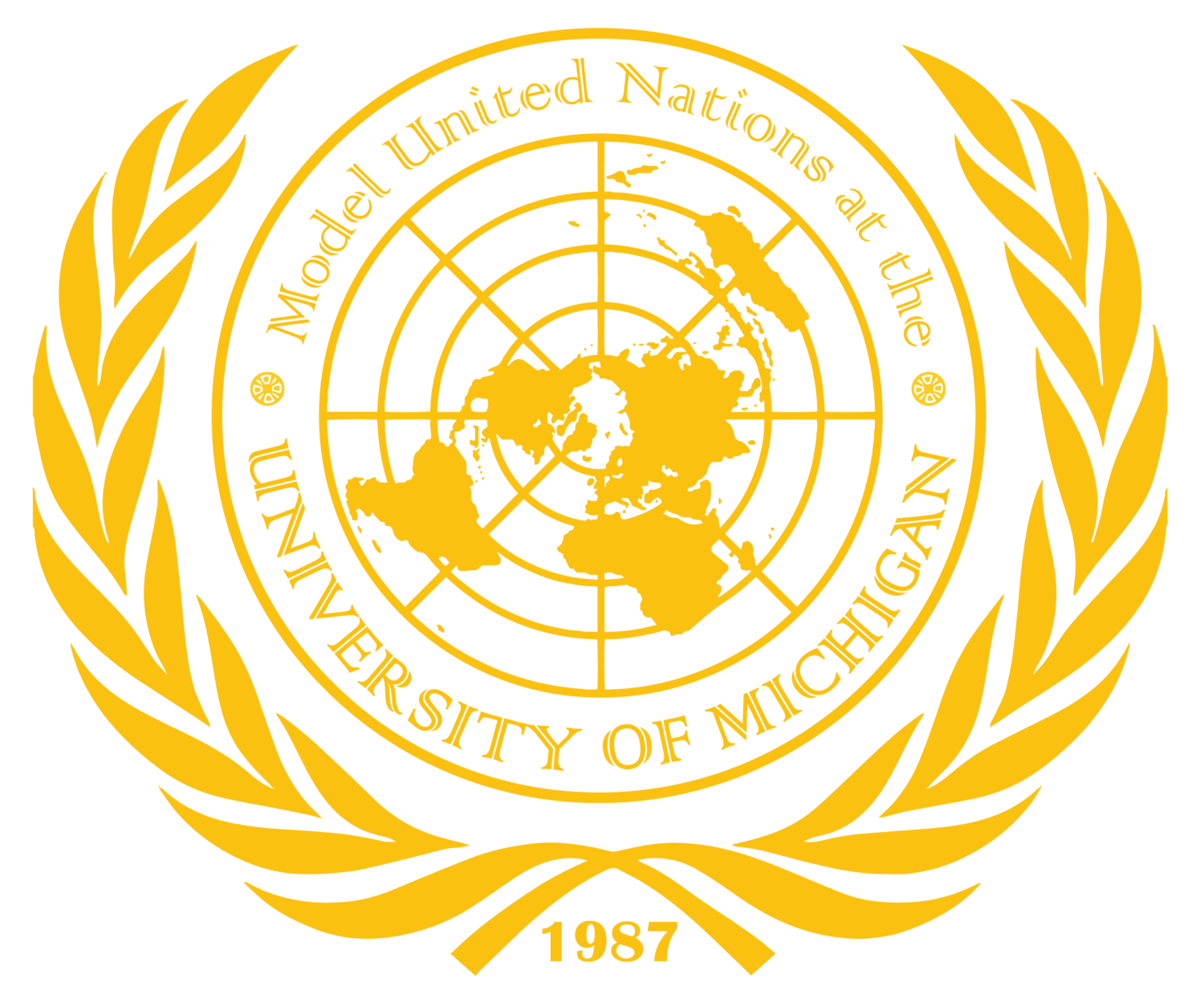Six Feet Away From Selfishness
As the Thirty-Seventh Annual MUNUM began with thunderous applause from all corners, keynote speaker Richard Lui gave a moving speech discussing the prospects of kindness, selfcare, and community by detailing his life.
Rackham Auditorium, Ann Arbor - As delegates began to pile into the auditorium with electric excitement about the next four days of debate, the secretariat was met with chatter and booming applause. As the excitement died down, the opening video containing a spoof of the popular TV show Friends showcased an incredible comradery among the staff of MUNUM 37.
The speeches of the Secretariat led to an introduction of award winning and best selling author, Richard Lui, who had faced challenging experiences similar to the ones audience members had. He began his enthralling speech which highlights his struggle to find jobs before he became a CNN anchor. He also detailed struggles from his personal life, with the story of his father, who suffered with Alzheimer’s, as well as struggles from a retired firefighter, Paul Casey. All of this led into his message of healing internally and externally from an epidemic, whether it be Covid or even worse, selfishness.
Epidemic of selfishness
Selfishness is a large problem within society, an epidemic even. It is common among people to only care for themselves. Covid changed that. People were forced to join together in the hard times of 2020-2021. Covid opened up people's minds to a T. At the beginning of the pandemic it was grandmothers making masks from scratch, then schools supplying food bags for kids who needed it.. Although Generation Z has been deemed as a selfish generation, Model UN has shown through their charity work that kindness is an epidemic that’s taking over.
Kindness
The pandemic of kindness has been quickly spreading to heal the wounds inflicted from the previous pandemic of selfishness. Lui reflected on his internal conflict between furthering his career or taking care of his Alzheimer's-afflicted father. From this, Lui noted how, if he chose to take care of his father, he might not understand all that Lui was sacrificing for him. This led to the conversation of silent acts of kindness that happen every day that go unnoticed, Lui wanted the audience to know that despite his tough choices, the one he made, by slowing his career down, but taking care of his father every time he could, made him more confident in his message to the audience, as he took pride in what he believed in. This point was also furthered with the story of Paul, which Lui mentioned. Paul, an ex-firefighter, chose to retire in Colorado and drive thirty hours to New York to drive an ambulance to help those affected by the Coronavirus. Though MUNUM does not take it to as high of stakes as Paul does, the candy grams charity offered by the institution provides a way for students to indirectly support those without the same opportunity of education as they hold. Not only do the candy grams provide an opportunity for small acts of kindness between the MUNUM delegates, but they also provide a sense of community between committees separated by a 5 minute walk.
A Commutative Resolution
The Covid-19 pandemic was a time where everyone was “masked away,” lacking the normalcy of conversations at social gatherings and family events. Moreover, the human instinct to socialize freely with fellow colleagues and classmates was suppressed for over three years, while the majority of Americans shared the collective experience of being trapped in their homes, missing out on precious moments and memories with families, friends and classmates. Together, everybody experienced disruptions to their personal, professional and social lives. Ironically, the separation that rapidly occurred in the lives of people around the globe brought the world together more than ever before. MUNUM’s 2024 conference comes at the point of a new normal in people’s lives.
While primarily viewed as a negative experience, the pandemic did highlight the selflessness that can be found in all of us. In particular, Lui’s bittersweet anecdote about Paul, a prime example of this selflessness that brought communities together, saving lives. Furthermore, many worked diligently behind the scenes in restaurants, healthcare, and many other essential fields to keep communities running smoothly. Lui’s keynote at the opening ceremony set the tone for the conference, and as delegates converge on this conference from schools as far as 700 miles away, to those coming just miles from Michigan’s campus, everyone is urged to embrace the values of empathy, kindness, and selflessness throughout MUNUM’s 2024 conference.
The emphasis on community at MUNUM is evident in the fundraising efforts that aim to provide a safer and more enjoyable education for underprivileged youth in Nepal. While charities are most prevalent in ways to connect communities, committees such as UN Women are also working endlessly together to provide equal opportunities and kindness for others. The lessons learned and developed this year at MUNUM must be applied to life everyday in order to make the world a more open and selfless space, much like what Mr. Lui wants. In the words of our own keynote speaker, “What will your message be?”


